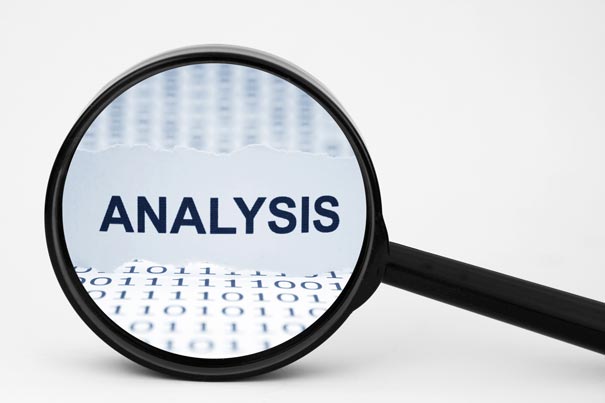The South African economist Lorenzo Fioramonti is one of the leading critics of the fact that we measure the well-being of society using a single statistic. In three books, most recently The World After GDP (2015), he argues that the economic activity captured in gross domestic product (GDP) has been the priority for policies and incentives around the world for the past few decades – with disastrous results.
At a recent guest lecture at the Scottish parliament in Edinburgh that was organised by the Carnegie UK Trust, Fioramonti told his audience that GDP is a fundamentally flawed measure of economic performance, let alone well-being.
It has been foisted on the world by rich countries, especially the US, and the political interests that they represent. Just as those who live by the sword die by the sword, any democratic government can expect to lose power if it fails to increase GDP.
Back in 1992 it was James Carville, Bill Clinton’s director of strategy, who kept repeating to the future president the phrase: “It’s the economy, stupid”. Carville knew President Bush would struggle to defend his handling of the economy. He insisted Clinton repeatedly raise weak GDP growth to show Bush was failing to lead the country.
Sure enough, it helped win the election. Case closed? Not according to Fioramonti.
Simplicity and complexities
Economists like GDP because it is a single statistic. It seems precise. But as Fioramonti pointed out on a day the Scottish parliament had been debating a small fall in Scottish GDP, the initial estimates are always subject to revision. Important variables are only available after taxes have been paid, so the most accurate figures take two or three years. By the time those are published, there probably won’t be any debates in parliament on the subject.
Then there is how to measure GDP. Most countries total all of the income that activities produce, ranging from the wages of individuals to the revenue of companies. But this can lead to all kinds of distortions. Take Ireland, for example. If a UK shopper buys a product online from a retailer domiciled in Ireland, that retailer’s income will be counted as part of Ireland’s GDP.
That would be perfectly reasonable for, say, an Irish shop with a website. But many multinationals put all their European sales through an Irish business unit for tax purposes. Consequently Irish GDP is no longer an accurate measure of the economy’s performance.
When I interviewed Fioramonti after his lecture, he quickly rejected any suggestion that you could solve these problems simply by having a better measure of GDP. This would simply continue to confuse the wealth of the nation with its income, and fail to value other factors important to our well-being such as sustainability. If an offshore drilling company is depleting the Great Barrier Reef, say, focusing on GDP merely continues to prioritise the business success over the environmental damage.
Fioramonti linked the primacy of GDP to the development of Keynesian thought and the perceived need to measure national income after the global slump of the 1930s. His characterisation of the use of GDP in political analysis reminded me of Keynes’ claim that “madmen in authority, who hear voices in the air, are distilling their frenzy from some academic scribbler of a few years back”.
But Fioramonti believes economists cannot shrug off responsibility for politicians’ use of GDP. The Keynesian economists who adopted GDP growth as a policy target after the war ignored Keynes’ own critique that monetary values cannot truly measure well-being. And when Keynesian demand management failed to achieve strong GDP growth in the 1960s and 1970s, the neoliberal economists who came to the fore compounded the problem by making that growth an even greater priority.
For Fioramonti, weaning the world off GDP is a little like playing chess: you need to win by accepting the rules and conventions of the game before you can change the game. In other words, you need to demonstrate to advocates that, as in the Irish example, GDP no longer measures well-being.
So far so compelling, but I must admit I struggled with his proposed alternative. Fioramonti envisages a “census of assets” – a 21st-century global Domesday Book that would be a record of how people value the assets they need for a good life. It would include everything from jobs to shelter to the surrounding countryside. It would use the language of sustainability and need, and what was included would be subject to a public vote.
I pressed him on how we might value and compare the multiple sources of well-being that are essential to an alternative approach. He was clear it wouldn’t be primarily about assigning monetary values to things.
You would accept that different categories would be measured in different ways and that these would all be part of the mix. Where it made sense you would monitor resource depletion, for instance reducing the value you ascribe to the Great Barrier reef as appropriate.
All these measurements would go towards a national “performance dashboard” – in line with a concept being promoted by the Carnegie Trust. The trust shares Fioramonti’s interest in measuring well-being and incidentally sees Scotland’s efforts to score its government policies using a wide range of indicators as being at the leading edge.
Our discussion was rapidly going away from economics towards something much broader. Fioramonti said he considers even social interactions to be vital to well-being. I certainly agreed with this, but it highlights a problem of practicality. The challenge for developing Fioramonti’s census will be balancing the easily measurable factors associated with well-being with the broader range that are arguably important.
It is not made easier because Fioramonti and other critics of GDP seem to value dialogue rather than statistical measurement. He talks about beating the economists at their own chess game, but he seems to have left the table after an opening gambit.
Author: Robert Mochrie, Associate Professor of Economics, Heriot-Watt University

